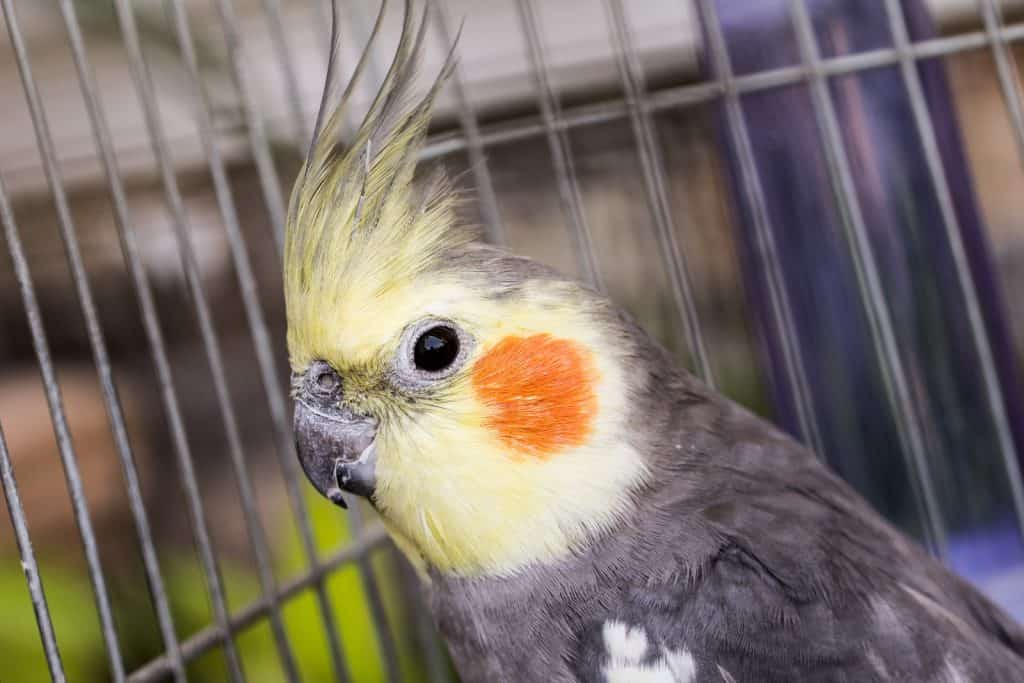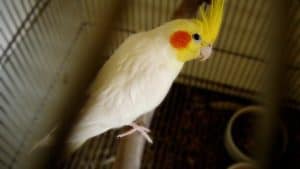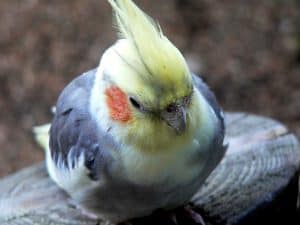If your underweight cockatiel or pet birds falls outside of the standard weight range, you may need to take steps to help them gain weight. Some reasons for cockatiel losing weight or being underweight include poor diet, depression, genetics, and behavior when eating. As a caretaker, you can improve their health by helping them put on some additional pounds.
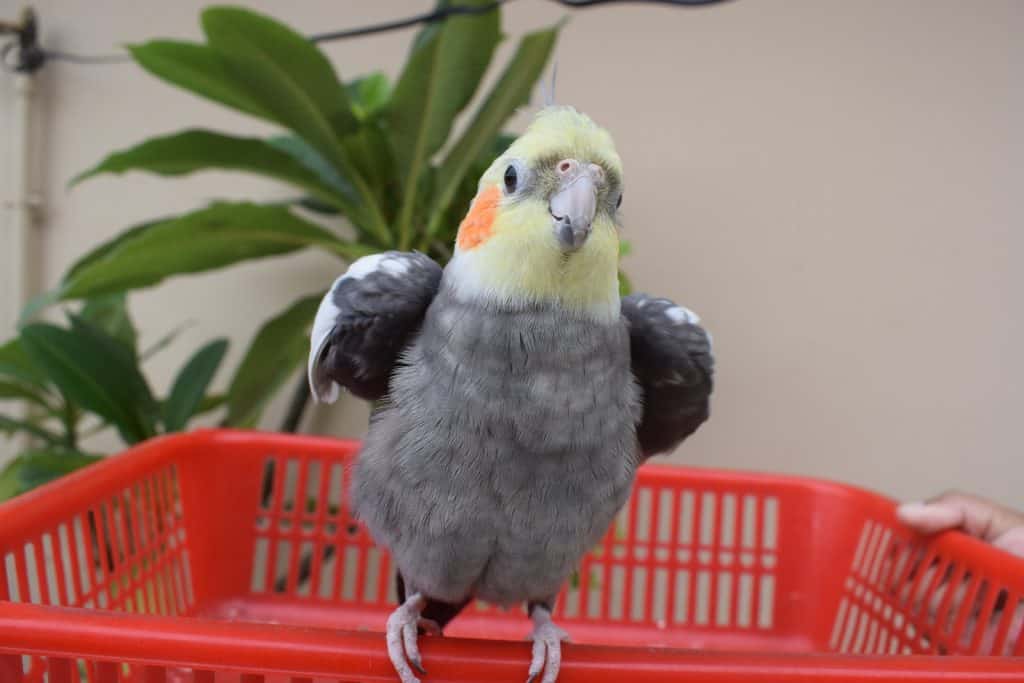
Rework on the cockatiel weight chart
Cockatiels are finicky eaters, and they prefer less healthy food in their diets, which can cause their calorie intake to drop. When the weight of a cockatiel drops, it indicates that he is skinny cockatiel , deficient in protein and fat and is considered as an underweight cockatiel.
This cockatiel gain weight technique worked because I refused him the option to select other foods whenever peanuts were offered. He eventually liked having peanuts. You should provide them with a variety of sunflower seeds, red palm oil and grains, as they will appreciate them and acquire enough calories from them. They will eventually gain healthy weight.
- COCKATIEL FOOD: Large variety of seeds, grains and vegetables in every bowl to provide the balanced variety of nutrients that cockatiels need with great taste theyll love.
- ADVANCED NUTRITION: Contains vitamins, minerals and Omega-3 fatty acids to support healthy skin and shiny feathers.
- IMPORTANT VARIETY: Unique mix of millet, oat groats, safflower seeds, sunflower seeds, cracked corn, peanuts and more creates an irresistible blend to replicate diets found in a natural habitat and encourage foraging behaviors.
- DAILY DIET: Feed cockatiels 2 to 4 tablespoons daily per bird.
- WILD HARVEST BRAND: Offers a full assortment of nutritional and interactive engagement products.
Control the activity level if your cockatiel is hyperactive
Cockatiels can get stressed and even lose weight if they’re constantly active or pestered by other birds. If your cockatiel is too high-strung, try controlling his activity levels by restricting his space and removing toys from his area. This will give him a chance to relax for a while, which can help increase weight due to the carbs content in his body.
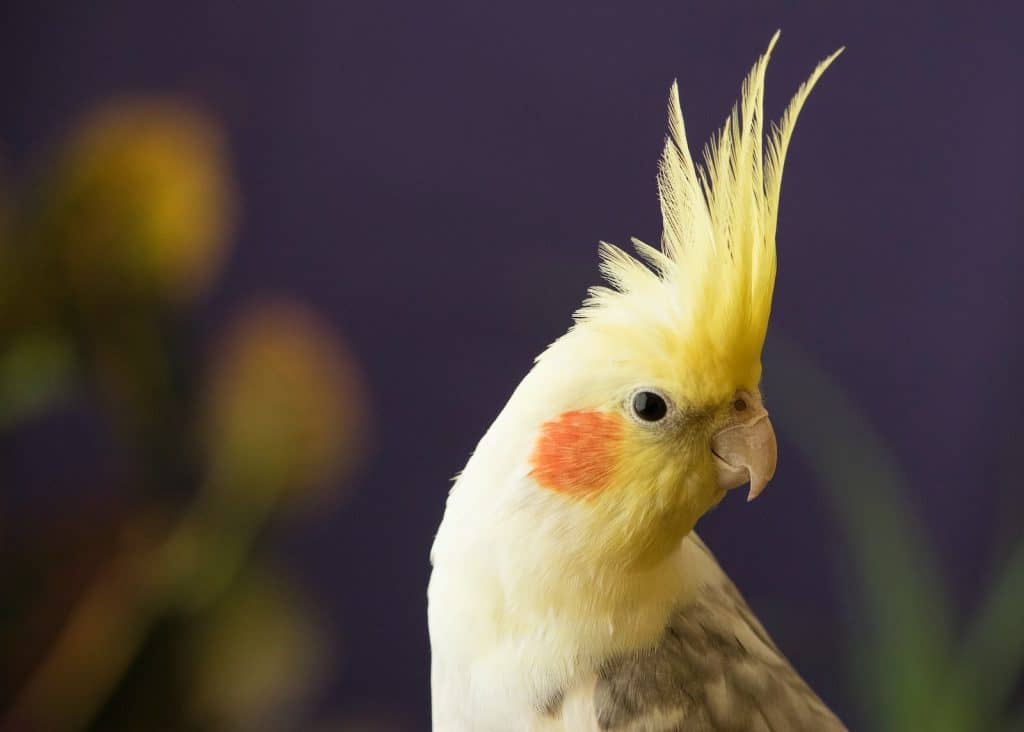
Separate from other birds and give attention
Aside from proper diet you need to do is isolate him, especially baby cockatiel and handfeed him for a short while. Although it can be taxing, seeing him rapidly gain weight is beneficial for his mental state.
Although it may not be possible to keep cockatiels apart from other birds permanently, doing so temporarily can be beneficial since you would then know what his wants and health issues are. Also, take note of the health conditions of other cockatiels as well. One sickcockatiel can quickly spread its disease to others through contact. This is something else you should keep in mind before separating them.
- STURDY CONSTRUCTION - Made of the highest-quality iron frame with a black powder varnish guaranteed to make this birdcage sturdy and durable, even against playful birds; With 4 caster wheels at the bottom, so you can move it anywhere you like, saving you effort
- MULTIPLE DOORWAYS - Designed with 2 doorways for your pet birds to enter and exit; The top of the cage opens up and can be propped open with a wooden crossbeam for your birds to stand on; Traditional doors are located on the side of the cage
- SLIDE-OUT TRAY - Equipped with a plastic tray at the bottom of this bird cage that can be removed for easy cleaning, so as to keep a clean and tidy environment as well as keep your pets safe
- VARIOUS WAYS TO PLAY - Includes a swing and multiple bars to stand on; Convenient doors so you can change the food without disturbing your pets; Locking joints to keep the cage secure; With little design features that stand out among the crowd
- EXTRA STORAGE SPACE - Comes with an additional mesh shelf so you can store food and toys out of the way; Provided with a wealth of accessories, including 4 Wooded perches, 4 Feeding cups, and 1 swing
Increase in food quantity
A cockatiel needs 2 tablespoons (~30 grams) of pellets or seeds twice a day. In addition to a solid diet, you should also give him access to water at all times.
If your bird is underweight, it’s best to feed him 3-4 tablespoons (~45-60 grams) of pellets or seeds each day. This will not only provide the energy he needs to stay active but help him gain weight more quickly.
- BRIGHTLarge transparent windows at the front and back allow small animals in the travel bag to enjoy the scenery and sunlight outside.
- BREATHABLE3 metal ventilation holes are set on each side of the front, back and top.Anti-bite mesh windows installed on the left and right sides.Let the small animals in the bag get enough fresh air.
- DIMENSIONLength: 12.4 inches, width: 10 inches, height 10 inches.The height above the standing perch is 7.5 inch.
- PORTABLEA hand strap is set on the top of this bird travel carrier. Also comes with an adjustable shoulder strap. It is easy to carry.
- Practical TrayConsidering the high edge of the iron tray, it takes up the parrot's activity space. And will be rust over time, hard to clean and bulky. We use lightweight acrylic board as the tray. It hardly occupies the activity space of the parrot. Wipe it with a wet towel if it is dirty. Convenient and practical.
Regular communication with your bird
An an animal lover you need to pay attention to important details like balanced diet, poor digestive system and mental health. The mental health of a bird is vital, but often overlooked and we did not realize it is one of the causes of underweight cockatiels. Isolation and loneliness can affect birds just as it does humans. If you’re away from home for an extended period or if the human interaction with your cockatiel is lacking, he/she may become stressed. This can be dangerous if it’s been going on for some time. To help improve your cockatiel’s mental state, here are a few things you can do:
- Make sure to take some time each day to just play.
- Provide your cockatiel with as much space to fully explore your abode as possible.
- When treating a frightened bird, it’s important to include another species.
- Give him as many toys as you can.
- Talk to your partner frequently and initiate physical touch.
- Easy to useThe bird food bowl has strong clips that it attaches to the side of the bird cage. The bird cup can be hung in the cage and it can be used to hold food or water to prevent your bird from accidentally dumping the food/water bowl.
- Easy to cleanThis bird dishes can be easily installed in and out of bird cages, as well as on large trays in bird cages. It is easy to clean with water and does not require wasting time on washing and cleaning.
- Stainless steel BowlVVNIAA Stainless bird bowl is made of stainless steel. It is non-toxic, odorless and bacteria-free. This pet bowl has two parts, one part is the holder and the other part is the stainless steel bowl.
- Wide range of adaptabilityThis bird food bowl is suitable for all models of bird cages and the birds of Cockatiel Conure Budgies Parakeet Macaw Parrot Lovebird Chinchilla Rabbit Ferret, Other Small Animals.
- Safe materialThe bowl is made of stainless steel, non-toxic and odorless.You can feed your feathered friends with confidence.
Use weight gain supplement
If your attempts to fatten up your cockatiel fail, take him or her to see an avian vet. The professional may prescribe a multivitamin supplement which will not only make the bird hungrier but also balance its diet with much-needed nutrients.
How do I know if I have underweight cockatiel?
If your cockatiel weighs less than 80 grams and you can see his keel bones, he is underweight. If that’s the case, your cockatiel could become dangerously thin because his muscles might run out.
In addition, the breast bone becomes sharp to touch. This is how you can tell for certain that your cockatiel is underweight. If you touch your bird, you will be able to feel this easily.
- Perfect Treat: Millet is a popular and nutritious seed that is suitable for a variety of bird species, including Canaries, Budgies, Lovebirds, Cockatiels, and Conures. These small seeds are rich in carbohydrates, protein, and essential nutrients, making them a healthy addition to the diet of many pet birds. Millet can be offered as a treat or as part of their regular diet. It provides energy and can also serve as a source of mental stimulation for these intelligent birds
- Building Blocks of Health: All Natural, no pesticides or chemicals and Non-GMO, our millet is high on Amino Acids, a crucial element for overall health - supporting functions such as muscle development, immune system strength, and feather quality in birds
- Value: Pristine all-natural millet, free from stems, ensures you pay solely for the premium millet, maximizing value and quality in every purchase
- Proudly Grown and Sun Dried in the USA: Prioritizing and supporting domestic agriculture, our millet is farmed and packaged in the Midwest which provides a lower carbon footprint. Sun Drying enhances the flavor and nutritional content of the millet while avoiding the use of artificial drying methods
- Convenient storage and Bug-resistant: Easily store our bird millet spray in a cool environment without concerns or complications. Our millet spray won't attract unwanted bugs, ensuring a clean and hassle-free storage experience
Bottom Line- Underweight Cockatiel
Making your cockatiel put on weight is a simple process as long as he does not have any other problems, so don’t stress if have an underweight cockatiel. It’s also critical for cockatiel parents to use a bird scale to accurately assess weight differences. You should observe a significant increase in the weight of your cockatiel in 7 days if you employ the techniques described in this article.
